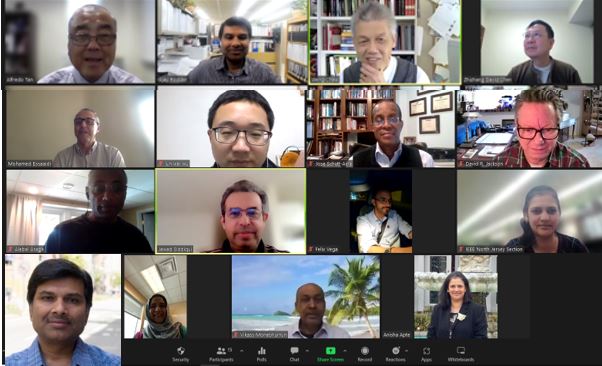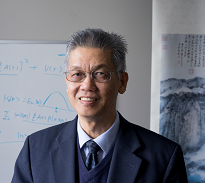IEEE AP-S can contribute to the use of wireless technology for the developing world: A brainstorming session

Agenda:
Anisha Apte —Recent CAC/COPE/SIGHT Activities, Reporting to AP-S Magazine and AP-S COPE Website Committee On Promoting Equality (COPE) (aps-cope.org)
Dr. Avimanyou Vatsa- COPE Project
Dr. Alebel Arage -Report from Power Africa Conference
Prof. Weng Chew: How AP-S can contribute to the use of wireless technology for the developing world: Brain storming session
Dr. Ajay Poddar: Collaboration with IEEE HAC, IEEE Sister-Society, and ISV
Homepage - IEEE Humanitarian Activities Committee
Leveraging Technology for Sustainable Development - IEEE SIGHT
Date and Time
Location
Hosts
Registration
-
 Add Event to Calendar
Add Event to Calendar
Loading virtual attendance info...
- McLean Blvd.
- Paterson, New Jersey
- United States 07504
- Building: 201
- Contact Event Hosts
- Co-sponsored by IEEE North Jersey Section
Speakers
 Prof. Weng Chew
Prof. Weng Chew
IEEE AP-S can contribute to the use of wireless technology for the developing world: A brainstorming session
Biography:
Prof. Chew received his Bachelor's, Master's, and Ph.D. degrees in electrical engineering from the Massachusetts Institute of Technology in 1976, 1978, and 1980, respectively. Following his doctoral studies, Chew joined Schlumberger-Doll Research in 1981 where he rose to the rank of department manager. In 1985, he accepted a position at the University of Illinois Urbana-Champaign, where he was Director of the Electromagnetics Lab from 1995 to 2007. From 2007 to 2011, Chew served as Dean of Engineering at the University of Hong Kong. In 2017, Chew joined the School of Electrical and Computer Engineering at Purdue University.
Chew's chief contributions are in the areas of waves in inhomogeneous media for various geophysical subsurface sensing and non-destructive testing application, integrated circuits, microstrip antenna applications, fast and efficient algorithms for solving wave scattering and radiation problems, stretched coordinate perfectly matched layers, and inverse scattering using distorted Born approximation.
Chew has developed fast solvers that make it possible to simulate the electromagnetic behavior of structures of unprecedented sizes. Specifically, his group had the first working multilevel fast multipole algorithm (MLFMA) that when adopted by other groups, subsequently helped increase the size of solvable problems by six orders of magnitude. More recently, Chew has turned his attention toward combining quantum theory with electromagnetics, as well as combining computational electromagnetics with differential geometry. He has also recently derived quantum Maxwell's equations directly in coordinate space.
Chew is the author of Waves and Fields in Inhomogeneous Media (Van Nostrand Reinhold 1990; reprinted by IEEE Press, 1995), the co-author of Integral Equation Methods for Electromagnetic and Elastic Waves (Morgan & Claypool, 2008), and co-editor of Fast and Efficient Algorithms in Computational Electromagnetics (Artech House, 2001). In 2018, Chew served as President of the IEEE Antennas and Propagation Society. He is Editor-in-Chief of Progress in Electromagnetic Research and previously was Editor-in-Chief of the Journal of Electromagnetic Waves and Applications. He has helped organize the PIERS meetings around the world.
Address:New Jersey, United States

